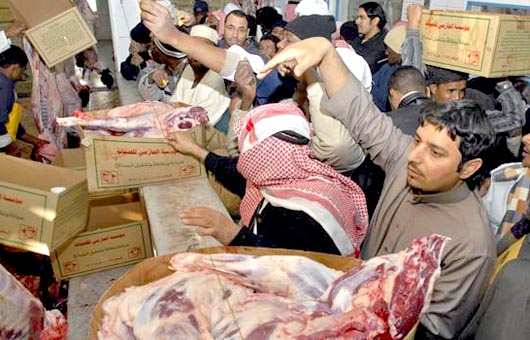
Jeddah, May 20: The Kingdom on Monday announced a temporary ban on the import of live cattle from Brazil following the discovery of new cases of the foot-and-mouth disease in one of the country’s provinces, according to the Ministry of Agriculture.
This comes in addition to an existing ban on beef imports from the country.
Brazil was one of the largest suppliers of beef to the Kingdom, exporting 34,000 tons of beef yearly up until the 2012 ban.
The price of meat products has risen 30 percent ahead of Ramadan after several imported containers from India, a main source of beef other than Australia since 2012, were denied entry for failing to adhere to health standards.
Brazil had previously threatened to file a complaint to the World Trade Organization (WTO) for the ban on its products.
Negotiations are still ongoing to have the ban lifted.
Quarantine units at entry points have recently barred the entry of animals for fear of the mad cow disease, although the ministry has not named the country of origin of the cattle.
Authorities have also been closely monitoring imports from India.
The Saudi government is exploring new markets to ensure that demand for beef and meat is met during Ramadan.
The Kingdom recently lifted a ban on Pakistani sheep, stipulating that the animals are quarantined in Karachi for 21 days prior to being shipped to Saudi Arabia.
The Kingdom imported an estimated 7.7 million sheep and almost 32,000 cows in 2013, according to statistics.
Foot-and-mouth is an infectious and sometimes fatal viral disease that affects cloven-hoofed animals. The virus causes a high fever for two or three days, followed by blisters inside the mouth and on the feet that may rupture.






.jpg)
.jpg)
Comments
Add new comment